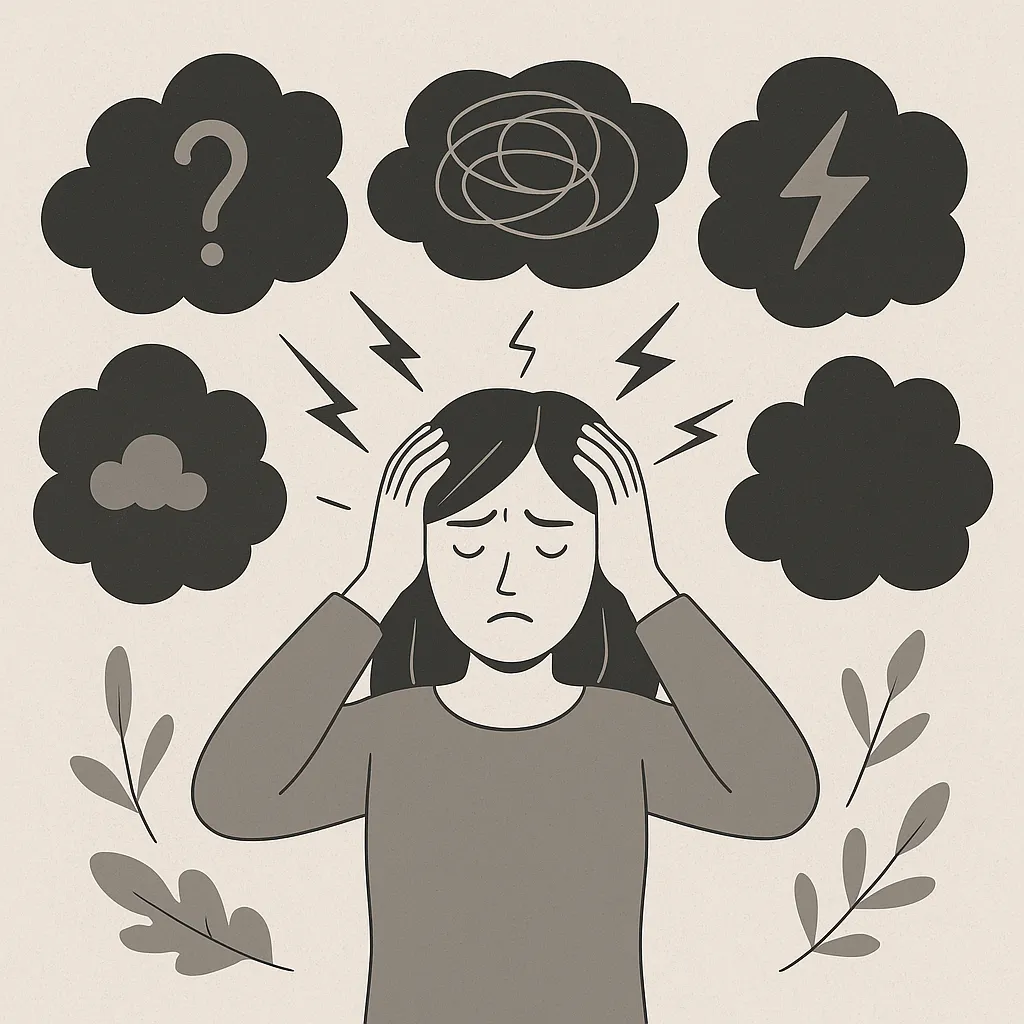
Understanding Generalized Anxiety Disorder (GAD) in Teens: What Every Parent Needs to Know
“I have said these things to you, that in me you may have peace. In the world you will have tribulation. But take heart; I have overcome the world.” - John 16:33
Understanding Generalized Anxiety Disorder (GAD) in Teens: What Every Parent Needs to Know
Generalized Anxiety Disorder (GAD) falls under the broader category of anxiety disorders, which also includes conditions like social anxiety, separation anxiety, and panic disorder. While GAD can have hereditary links, it is also commonly triggered by traumatic life events such as a divorce, significant loss, or ongoing stress in the home or school environment.
For teens, GAD presents as excessive and persistent worry about a range of everyday concerns school performance, family dynamics, friendships, safety, and future events. Unlike typical teenage stress, this worry becomes overwhelming and intrusive, often manifesting as negative internal dialogue that feels impossible to shut off.
Many of the teens I work with describe this experience as having "multiple voices" in their head voices that sound like them, yet constantly speak fear, failure, and worst-case scenarios. These thoughts can make it difficult to focus on daily tasks. In fact, several clients have told me that they only get one day a week where they feel truly clear-headed and productive.
From personal experience and years of working with teens, I know how real and exhausting this struggle is.
Common Signs of GAD in Teens
Teens with GAD may experience both emotional and physical symptoms. These can include:
Frequent headaches or stomachaches with no medical cause
Muscle tension or fatigue
Difficulty sleeping or staying asleep
Heart palpitations
Avoidance of school or social situations
A constant need for reassurance
Restlessness or irritability
Trouble concentrating or making decisions
Difficulty managing uncertainty
Reliving past embarrassing or painful experiences
For example, one teen client I worked with still experienced physical distress nausea and anxiety a full year after tripping in front of her class. The memory replayed in her mind daily, and she couldn’t move past it. For many teens, this kind of rumination constantly replaying situations and being unable to "let go" is a hallmark of GAD.
In some cases, unresolved anxiety can also lead to anger or defiant behavior, especially when the teen feels misunderstood or overwhelmed.
A Real-Life Example
One of the families I supported was dealing with a teen girl who had become fixated on her appearance. She would spend up to three hours each morning doing her hair and makeup even on school days. Her appearance had to be flawless, or she would experience physical symptoms like stomach pain, a racing heart, or full-blown panic. She often called home asking to be picked up from school and gradually began to isolate herself.
Her parents were at a loss. Her mother didn’t understand what was happening, and her father frustrated would leave the house before she was ready or try to force her out the door. This teen wasn’t simply being difficult she was living in a constant state of distress. And like many teens with GAD, she needed support, understanding, and targeted help.
Why Parental Support Matters
When your teen is dealing with GAD, your role as a parent becomes even more critical. Even when their behavior doesn’t make sense to you or feels frustrating what they need most is your presence, your patience, and your willingness to listen without judgment.
One of the greatest gifts you can give your teen is a safe space to share what they’re feeling. Judging or minimizing their experience can shut down communication. But active, compassionate listening opens the door to healing.
Left untreated, GAD can develop into more serious issues such as panic attacks, depression, or even substance abuse later in life. That’s why early intervention and consistent support are so important.
How I Can Help
As a Christian Teen Life Coach specializing in anxiety and trauma, I use a powerful, evidence-based blend of Cognitive Behavioral Therapy (CBT) and Biblical principles to help teens gain peace, confidence, and clarity. My 1:1 coaching is personalized to meet your teen exactly where they are equipping them with practical tools, Scripture based truth, and weekly emotional support.
Each session includes:
Biblically rooted encouragement
Thought reframing using CBT techniques
Emotional check-ins and progress tracking
Action steps to practice throughout the week
Gentle accountability and spiritual growth
If your teen is struggling and you're not sure where to turn, know that you're not alone and there is hope.
Take the assessment test here: Assessment Test
Sign up for the limited spots for personal coaching: Application
